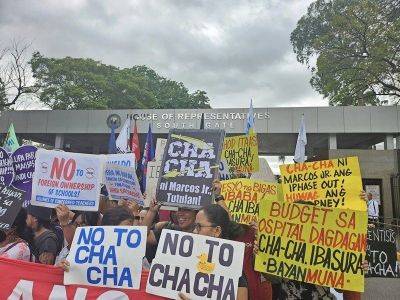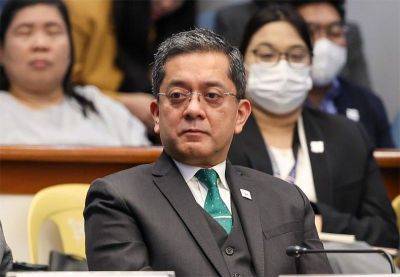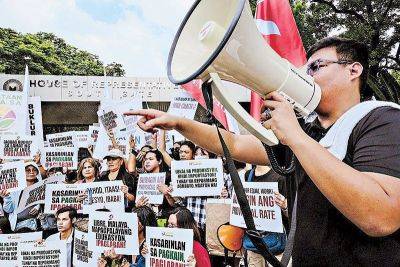House approves economic Cha-cha
MANILA, Philippines — The House of Representatives approved on second reading last night Resolution of Both Houses 7 (RBH7) amending restrictive economic provisions in the 1987 Constitution, just before Congress goes on a Holy Week break.
Administration lawmakers overwhelmingly endorsed through a voice vote the economic Charter change ostensibly aimed at relaxing foreign ownership restrictions in public utilities, education and advertising.
Rep. Rufus Rodriguez, chairman of the House committee on constitutional amendments, suggested that in light of the Philippines’ rift with China over the West Philippine Sea, the government can “exclude Chinese and other risky investors in the economic Charter amendment enabling law.”
He said the phrase “unless otherwise provided by law” is proposed to be inserted in the Charter’s economic provisions to give Congress the power to change foreign investment limitations, but this would not mean that all foreign capital would be accepted.
Rodriguez said Congress can include a “screening process” in the enabling law that would prevent countries engaged in conflict with the Philippines from coming in with their investments.
“I can mention China, with which we have a dispute over the West Philippine Sea. In other words, Congress can craft a law to make sure that risky countries or investments with implications on our national interest and security can be checked and barred from coming in,” he said.
Another proponent, Rep. Teodorico Haresco Jr. of the second district of Aklan, said RBH7 can create two million jobs and double the foreign direct investments in the country, which is very much needed as government tries to recover from the adverse effects of the pandemic.
“We hold the highest foreign investment restrictions among the ASEAN-5 because of the limitations set in our Constitution and it’s also the reason why we cannot maximize foreign investments which could generate jobs and alleviate poverty,” he said.Data presented by Haresco also showed the Philippines lagging behind its ASEAN neighbors, where it is the last in foreign investment inflows among the five biggest ASEAN economies – Indonesia, Malaysia, the Philippines,







